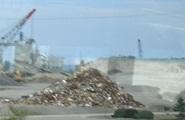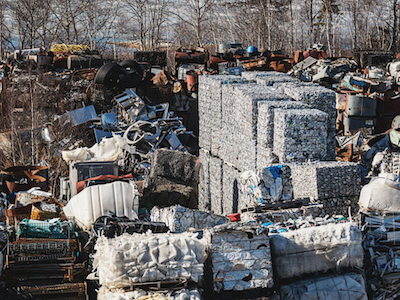Market

March 11, 2018
Marley: Several Factors Reshaping the Scrap Market
Written by Tim Triplett
Stronger domestic demand for steel products, combined with feedstock and transportation problems, sent ferrous scrap prices on divergent paths in various parts of the country this month, reports scrap guru Mike Marley of World Steel Exchange Marketing. Tight supplies of key obsolete grades produced pricing moves ranging from unchanged for industrial steel grades in several northern steelmaking cities to increases of as much as $50 per gross ton in the South.
Prices hikes of up to $20 per ton on shredded and cut grades were the first moves and the prevailing trend in some regions of the North, while the offers for busheling and bundles were sideways. But some dealers and traders in Chicago and other nearby regions held out and managed to push for increases of as much as $30 per ton for cut grades like No. 1 heavy melt and five-foot plate and structural scrap, a $20 per-ton hike for shredded scrap and even a modest rise of $10 per ton for busheling and bundles prices. In the South, however, some mills played catch-up and paid bigger increases. Shredded scrap prices rose by $30-35 per ton, heavy melt and five-foot plate and structural were up by $25-30 per ton and prime industrial grades like busheling rose by $10-15 per ton, Marley reported.
These wide-ranging price moves were seen not only between regions, but also within regions. Shredded scrap prices ranged from $350 per ton delivered to one Detroit area mill while other mills in the same region were paying as much as $360 to $365 per ton for the same product. In neighboring regions of Ohio, some mills were paying as much as $385 per ton to distant shredded suppliers. Delivered-to-the-mill prices for busheling and bundles were between $365 and $400 per ton in the Midwest.
In the South, mill prices for shredded scrap from local dealers ranged from $365 to $375 per ton, and between $395 and $405 per ton for busheling and bundles. But the local buys only tell part of the story in this industrial scrap-short region, Marley said. One flat-rolled mill there reportedly ran out of prime industrial scrap and paid as high as $425 per ton for busheling, including not only higher freight costs but also a premium for guaranteed supply.
Several factors have reshaped the market this month, Marley explained. First, the winter weather has interrupted supply into dealers’ yards and the processing and shipments of scrap to the mills. Consequently, several mills started the month still owed a substantial amount of the scrap they bought last month. What’s unclear is whether that had much impact on their buying. Many mills reportedly were still looking for the same volume of scrap they bought the prior month, which means they either were forced to eat into their winter inventories and were looking to restore them, or they were starting to see a spike in orders as consumers and warehouses switched from buying foreign to domestic steel due to the threat of Trump’s tariffs.
Second, transport is a problem throughout the country. Railroads aren’t supplying any more cars to scrap dealers. Trucks are harder to come by as the new requirement for electronic logging devices is limiting drivers’ time behind the wheel. High waters on the rivers, particularly the Mississippi River system, is a challenge for dealers that ship by barge. “It’s difficult to load a barge,” Marley noted. “One dealer on the river still owes more than 25 barges of scrap to several mills. A river-going barge carries about 1,300 tons, so that’s about 32,500 tons bought last month that still has to be shipped.”
Third, domestic mills are competing against strong foreign demand for exported scrap. Turkish mills reportedly have paid as much as $384 per metric ton for shredded scrap. Exporters on the East Coast expect to sell at that level or higher, which means they are unlikely to accept offers from domestic mills in western Pennsylvania or Ohio for less than $350 per ton on a shipping point basis, assuming they can get railcars.
“It isn’t just the Turks willing to pay higher prices. Sales of shredded in containers on the U.S. East Coast has soared to $360-365 per metric ton FSA (Free Alongside the Ship). It usually costs $10 to $15 per ton to truck a loaded container to the docks, so that matches the $350 per ton shipping point price the domestic mills must pay to be competitive with the offshore market,” Marley said.
Lastly, another factor affecting the market is a change in the supply pattern. Some of the EAF mills that also own scrap yards have changed their sales practices and are no longer offering much scrap to other mills. Mills without their own scrap yards are facing a supply challenge, he said.
The post Marley: Several Factors Reshaping the Scrap Market appeared first on Steel Market Update.






